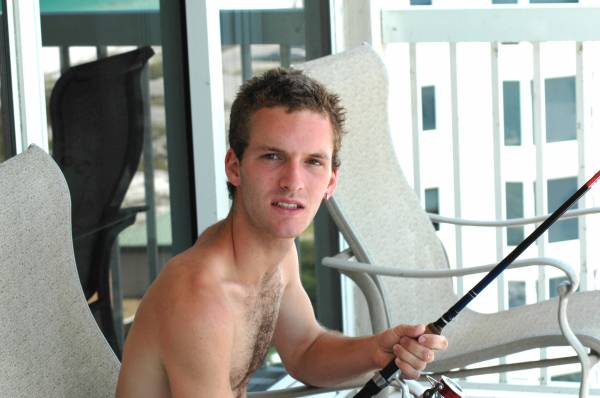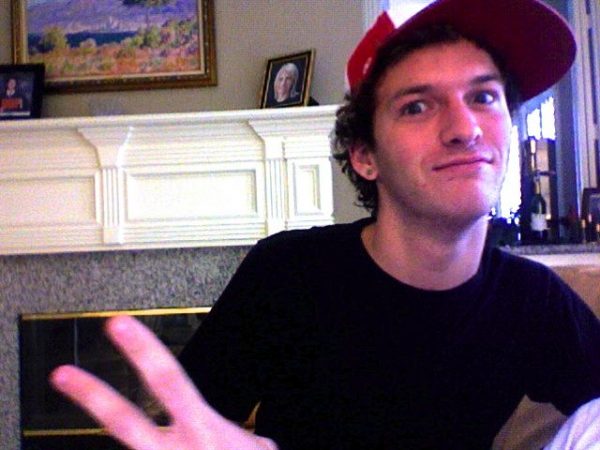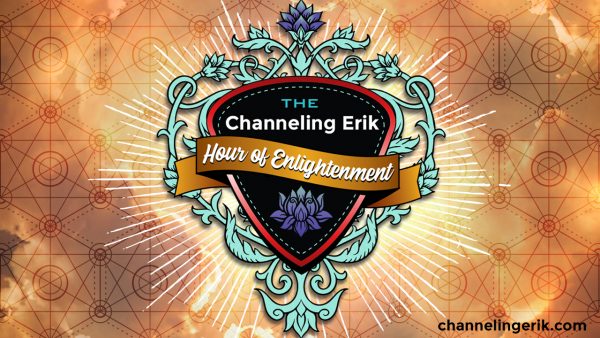I had such a great vacation with my sister and brother-in-law. There’s so much nature in the state of Arkansas, and I long for that after living in Houston where concrete outnumbers trees. Plus, Laura and I are really close and can talk about anything. I had been feeling a little blah about Erik and about being all alone in the house all day since the kids left for school, so time with them did the trick to reset my perspective and put a little bit of spark back in my heart.
I have a couple of announcements: I’m going to appear on the following show Friday, and I hope you join me. You can use the chat room to talk to me, Kim or, of course, Erik. You know he loves the attention! Here are the details:
The Outlander with Heidi Hollis
2/16/16 at 8:15 PM – 9:30 PM CT LIVE
Airs live HERE
Use LIVE CHAT feature to join the program
Listen to archived podcast HERE
And of course we’re going to have Erik’s Hour of Enlightenment radio show this coming Thursday from 7:00 – 8:00 PM CT. Call to talk to Erik at 619-639-4606 and click HERE to listen! Be sure to mark your calendars! There’s a chat room on the page, but it’s hard for me to toggle between two websites, my studio page and the page you go to, screening calls on one and picking chat room questions on the other so for now, I’m sticking to calls. Also, I figured out how to make clickable buttons for the radio show and the tour. Check it out on the right side of the homepage! You’ll also see a place where you can click to listen to our latest podcast. Every time we have a new episode, it will be updated.
Here’s today’s post!
Me: Hello, Jamie and Erik! Love you both!
Erik: Hello, Mother!
Jamie: Hi!
Me: Today, we’re going to discuss something we talked about a lot in the wonderful Channeling Erik Weekend in LA and that is grief. I want this session to be about how we can help those who grieve. Also, how do we help those who are among grievers?
Jamie: Erik says hi to everybody, and he started spoofing it right away.
Erik (in jest): Oh, it’s the best thing. When someone is grieving, you go up to them and go, (with an over-exaggerated sympathy head bob) “I know. I know.” Then you pat them on the head, “I know. I know exactly what you’re going through,” because you can say that you lost someone, too. FUCK!! This kind of sympathy versus empathy, like you people need to figure that out. You need to learn the fucking definitions. Sympathy is like, “Hey, I’ve gone through that situation, too and I sympathize with you.”
Me: It’s like pity.
Erik: Yes, total fucking pity. It’s like, “Oh, you’re feeling shitty? Let me pull my shit out, too, and I’ll put it on top of your shit. Ya feeling better?”
Jamie (laughing): What a visual!
I can only imagine.
Me: Oh, no!
Erik: But tell me that’s not fucking true, right?
Jamie: Wow.
Erik: With empathy, you can be right next to the person and empathize without your shit ever coming out. That’s the beautiful space for grieving. So when you’re supporting someone who’s grieving, don’t throw your shit in there. It’s stinky enough. Empathize instead of sympathizing. That’s a great first step. A lot of the conflict with grieving is completely internal. It’s this internal fight. Our culture says you have to do it in a certain amount of time, “Eh, we’ll give you three days off of work. That should help you.”
Me: Oof.
Erik: Three days off of work and you’re whole life just fucking changed?
Me: Yeah, I was in bed for more than that after Erik died.
Erik: That’s total fucking bullshit! “Oh and then you can take the option of taking more, but we’re not going to pay you. We’ll fuck your life over even more.” (In a valley girl voice) Thanks, America!
Jamie: Erik’s a little wired on this one!
Me: I think he is!
Jamie: He can get pissed!
Erik: When we’re having our internal battle, it’s mostly because of what our culture has taught us. Performance over laziness is absolutely acceptable. If you grieve and become lazy, then you’re sick and something is wrong with you, so we don’t know how to connect to you. So you begin to hide it. You compartmentalize it because there’s no other place to put it. I would love—
Jamie (laughing): Breast buddies? Wait a second.
(Pause)
Jamie (to Erik, still laughing): You have to say what it’s about because it makes no sense! He goes, “Like how women have breast buddies. You really need to have a go-to person.”
Me (laughing): Oh, okay.
Jamie: I told him, ‘I don’t have a breast buddy. I don’t know what you mean.”
Erik: You know, like checking your boobs for cancer. They started that thing where you call a friend.
Yeah, it’s called a doctor.
Erik: So women have breast buddies and men have testes buddies.
I seriously doubt that. Maybe on Brokeback Mountain, but…
(Pause)
Erik: “Dude, come”—
Jamie (laughing): I’m not saying that!
Erik: Just pick somebody that can help you. A grief buddy is simply someone who’s close to you that you can talk about the same story a thousand times, and it’s totally fine!
Me: That’s important. I had to recount all the details of that day because they were so hazy, and I wanted them to be clearer. I wanted to remember as much as possible so that the emotional charge could eventually lessen. Like a broken record.
Erik: It’s important, right? If you don’t have a friend who understands that being a broken record is a part of healing, like straight up one of the best parts of healing, then that friend is going to end up sabotaging you and supporting the cultural standard for grieving, pushing you through some fucking imaginary shithole steps that somebody created in the 70s that’s completely bogus. “First comes anger. Then comes—“
Jamie (chuckling): He’s listing them.
Erik: “Then you get sad. Then you feel alone. Then you get this.”
Me: That’s not right.
Erik: It’s not right. Everybody does it in their own way. The one way we connect to other people is through conversation, communication. That’s a very strong need for everybody, in general. Most of the time, for the grieving person, it’s about talking about the person who just died, or the pet that just died, or the tree in the backyard that just died. You want to go over it again and again, and as a friend, you go, “Do it. Let’s do it! Tell me more. Are there any more details? Have you ever looked at that in a different way?” Just encourage them to talk, and then this whole idea of, “Hey, once you’ve talked about it a little bit, they’re dead, so can you put those words away, too? Let’s just not talk about it.” That’s fucking bullshit, too. I’m super surprised because it’s not like that in every belief system or culture. There are so many that honor the ancestors. They bring them to life. They have altars. They talk about them. They make their favorite foods for them, etc. You know, sometimes it’s a little—
Jamie (to Erik): What do you—you just want me to say “fucked up?”
Erik: It’s a little bit of a fucked up ritual, but it helps them stay connected to those who have gone before you. That’s all I’m saying. Find something that works and do it.
Me: Yeah, where’s the country where they have strippers dancing on a table for the deceased? Thailand?
Jamie (chuckling): Taiwan.
Me: Oh, okay. Wow.
Jamie: Their Day of the Dead. They’ll put strippers on a parade trailer and take them through the town to lure and honor the spirits who left.
Yeah, the horny ones.
Erik: I mark that on my calendar, and I make sure to go there every year because I’m dead!
Jamie laughs.
Me: I bet you do! So, in our Western culture, we’re like, “The casket is lowered—“
Erik: “Bye. See ya.”
If you missed the first radio show, listen to it by clicking on the player on the right sidebar!
Here’s another lovely review for Erik’s book, My Life After Death!
The best book ever written describing what happens after we die. Written by the deceased, and in his own words that may be a bit colorful for some, but hey, that’s who he is and really, they’re just words, not to be taken to heart, they’re not directed AT the reader. The strength of the Mom, Dr. Elisa Medhus, to have the courage to transcribe all that Erik said is a testament to the love parents have for their children and the bond shared from parent to child. This book will help so many who have lost loved ones, as a holistic health practitioner, I know it has already helped my clients who have lost children and I know it will help others. They are still with you, though not in the physical form. We must be open to hearing from them by staying aware so we understand the signs they send us. There is noting worse than losing a child, knowing that you can still communicate with them is a comfort for many and this book, this transcription allows us to know it can be done. Kudos to Dr. Elisa Medhus for sharing all that she learned from Erik with all of us. It is life changing read that has the power to change the world. Read, be aware and trust.
–T Love



